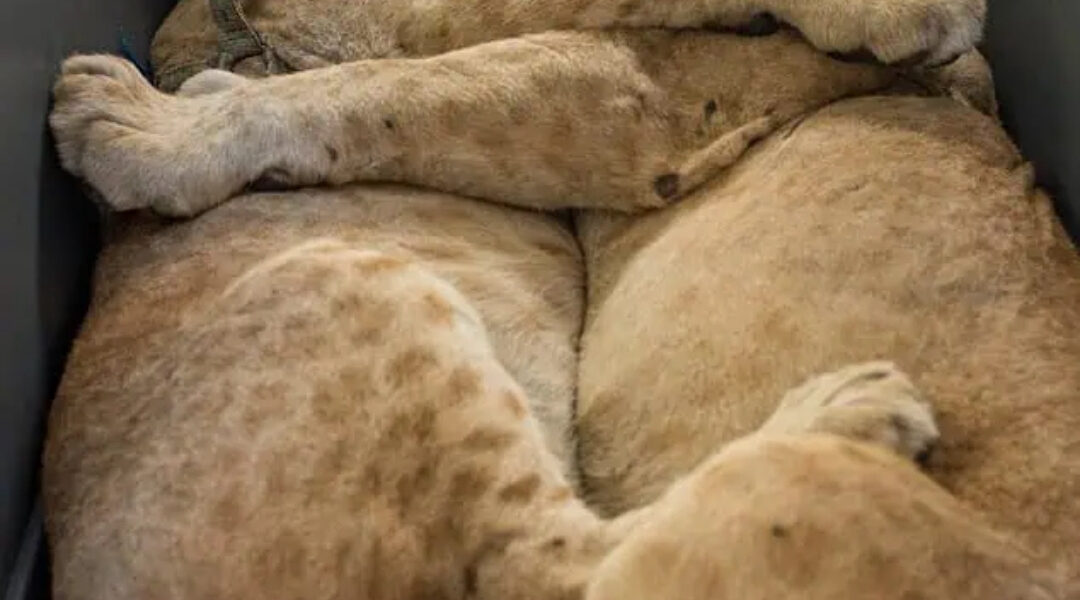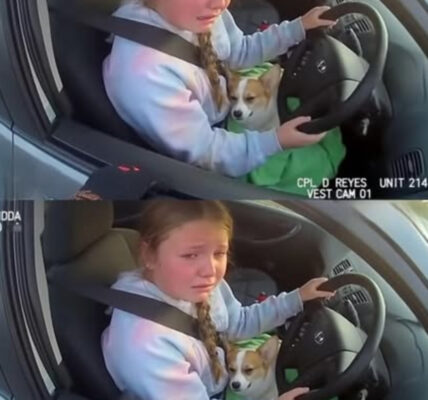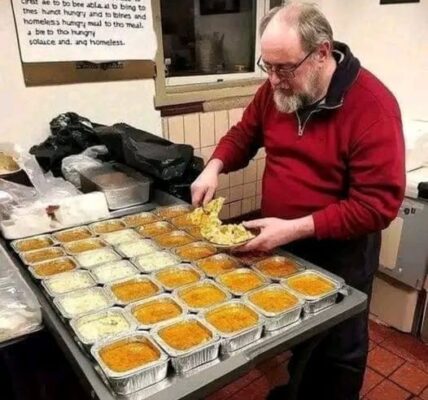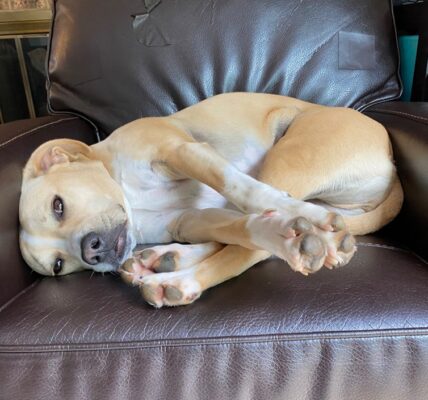From the Ruins of Gaza to Hope in Jordan — The Story of Two Lion Cubs Who Refused to Give Up.
When rescuers first laid eyes on Max and Mona, the two lion cubs were huddled together in a dark, cramped room inside a refugee camp in Gaza. Their fur was dull, their eyes weary — but they had each other. The small, frightened siblings clung to one another, the only comfort they’d known in a world that had been far too harsh, far too soon.

Born Into Chaos
At just two months old, Max and Mona were sold for £6,000 to a Palestinian man, Saad Aldeen Al-Jamal, after the Rafah Zoo — where they were born — was destroyed during airstrikes. Al-Jamal, a kind-hearted man despite limited means, brought them home to his small flat.
There, the cubs became part of the family. They played with his six grandchildren, shared meals, and even napped beside the children. For a while, it was as close to a normal life as wild animals could have in a war-torn city.
But cubs don’t stay small forever.
Within months, Max and Mona grew stronger, louder, and far too big for the apartment. The walls that once kept them safe now trapped them. Their health began to decline. Their playful energy turned to restlessness and confusion.

The Plea for Help
When animal welfare group Four Paws International learned of the cubs’ situation, they knew time was running out. Living conditions in Gaza made caring for wild animals almost impossible. Dr. Amir Khalil, a veterinarian known for his daring rescues in conflict zones, led the mission.
But rescuing lions from Gaza was no simple task.
Political tensions were high, and access to the region was heavily restricted. “At first, we weren’t allowed in,” Dr. Khalil said. “But we couldn’t give up. They needed us.”
After weeks of negotiation, Four Paws was granted permission to cross into Gaza.
What they found broke their hearts.
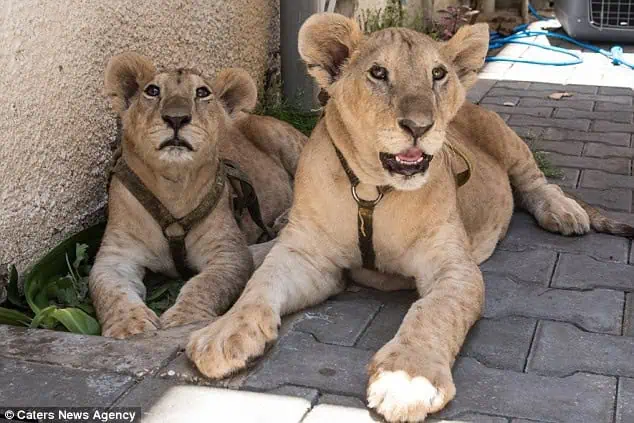
The cubs’ skin was damaged, their coats patchy from infection. Mona had swelling on the back of her head, possibly from a stroke. Despite their poor condition, both cubs remained alert — curious, gentle, and inseparable.
“They never left each other’s side,” said one rescuer. “It was as if they knew they were in this together.”
The Journey to Freedom
The mission to move the cubs from Gaza to Jordan was long and dangerous. The team faced endless border checks, unpredictable delays, and the constant threat of violence. But through every moment, Max and Mona stayed calm, pressed against each other inside their transport crate.
When they finally crossed into Jordan, the relief was overwhelming.

For the first time, they felt grass beneath their paws. The wind carried scents of open space instead of dust and smoke. They were free.
At the New Hope Center in Jordan, the cubs — now renamed Salam and Shalom, meaning peace in Arabic and Hebrew — began their slow recovery.
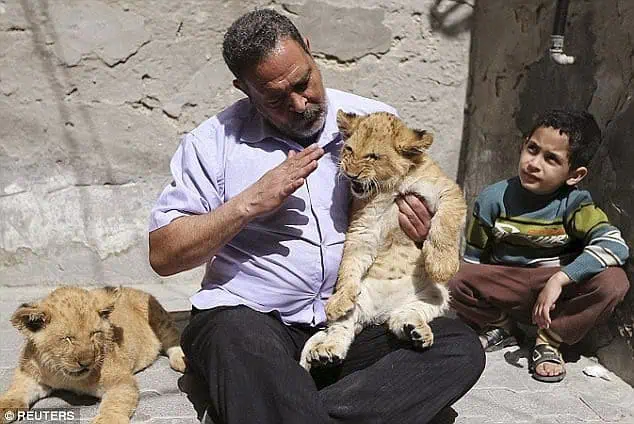
Veterinarians treated their skin infections and injuries. They were given space to play, to rest, to remember what it means to be wild.
Healing Together

In their new sanctuary, Salam and Shalom never stray far from one another. They nap together under the trees, their bodies pressed close, the same way rescuers found them that first day. When one moves, the other follows.
“They’ve survived everything — war, confinement, hunger — but they never stopped caring for each other,” said Dr. Khalil. “Their bond is stronger than fear.”
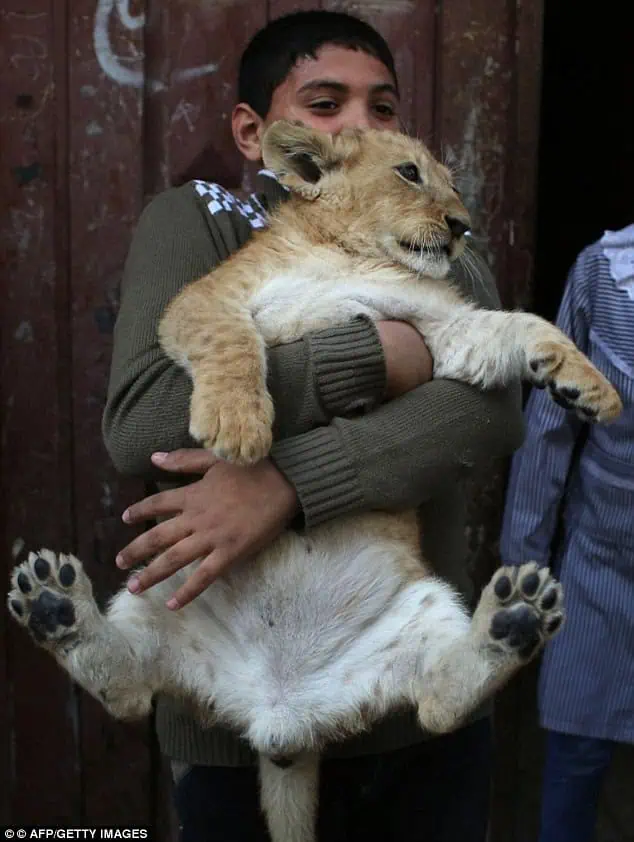
Soon, the siblings will move to their permanent home at Al-Ma’wa Wildlife Sanctuary, a vast refuge built for animals rescued from conflict and captivity. There, they’ll have open space, sunlight, and a chance to grow into the lions they were meant to be.
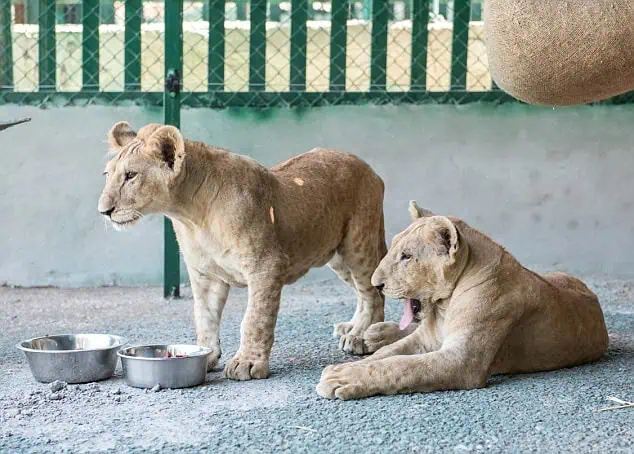
A Symbol of Hope
Their story is more than an animal rescue. It’s a reminder of resilience — of how life can endure even in the harshest places.
For Al-Jamal, giving them up was painful, but he knew it was the right choice. “They were my children,” he said softly. “But they deserve to live free.”
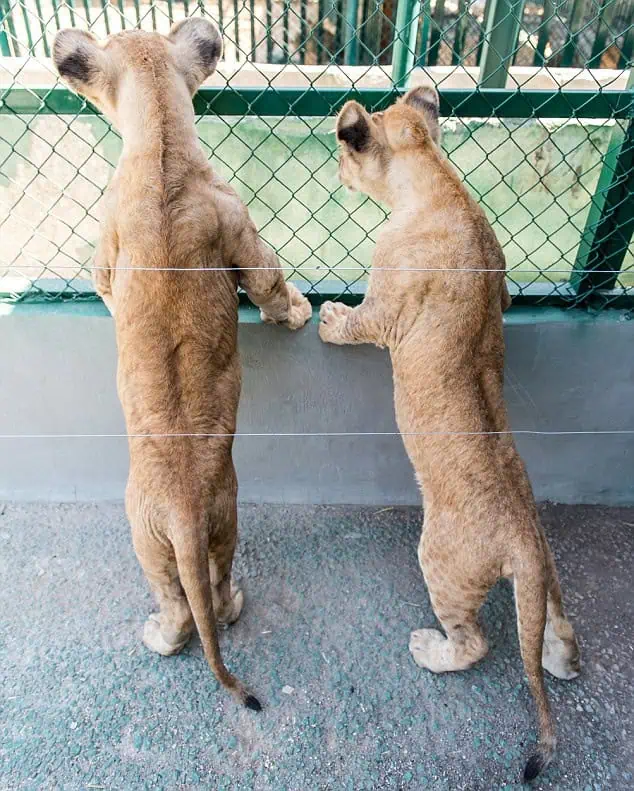
And now, they will.
In a world divided by borders and broken by war, two lion cubs named Peace now roam under the open sky — living proof that compassion can cross any barrier.
